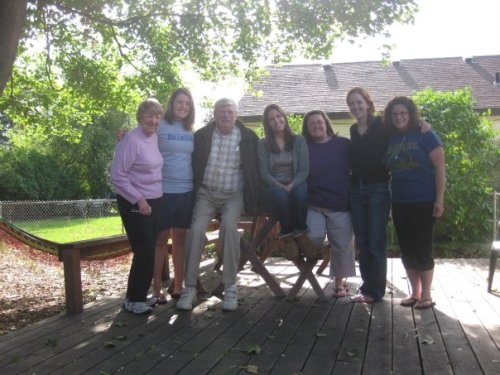This has been a pretty terrible summer.
Not in the sense that anything super tragic has happened, but it just hasn’t been great. I’ve been unemployed since May. And while the standard, unbelievably sexist line I have gotten is “it doesn’t matter! Your husband is going to be a lawyer! He has a job! You’re pregnant!” for our family, it does matter. I’ve been the primary breadwinner of late, so me being without work has meant us taking a financial hit. Despite helpful advice like, “just get a job!” I’m still out of work. This isn’t something we really foresaw – every career counselor I talked to assured me I was an excellent candidate for the jobs I was applying for, and we had planned on me moving to Helena in the spring and starting a job there. That’s not how it worked out. Then I swore to John I’d make money anyway, so I started nannying, and that job unexpectedly ended without enough time for me to get a new one before we moved.
Then last week I had a job interview.
Finally. It was something I was way overqualified for, basically the job I’ve been doing for the last year, minus about 90% of my responsibilities. It went terribly. The interviewer spent the majority of the time trying to get me to rescind my application because I was pregnant. (Which, yes, is illegal. But I kept getting the advice of “be honest,” and there’s not a lot you can do when you are being discriminated against). Probably realizing it was illegal for her to say, “you cannot have this job because you are pregnant,” she finally said, “well I can leave your name in for consideration if you want, but we are expecting lots of other applicants. Usually most people who apply for this job are retired.” I left my name in for consideration mainly out of not wanting to give into her rudeness, and partially out of curiosity. I don’t think I would work for the company based on how I was treated regardless, though.
So we don’t have a lot of money right now.
Then there has been this week. This week (well, last Friday), I was told I either have whooping cough or bronchitis. The doctor didn’t run a test, saying that because I was pregnant she didn’t want to wait for results but start treatment immediately, just in case. Largely I feel okay, but hot, tired, and my chest burns. And of course there is the gut wrenching coughing, made extra uncomfortable by the fact that there is less room in my gut than normal. Every cough slams my uterus into my bladder, made extra tender by the fact that cough syrup’s main ingredient is citric acid – an irritating substance.
Whooping cough wouldn’t be a huge deal, if it wasn’t for the fact that my husband is taking the bar this week and we move this weekend. So at night I cough into my pillow, trying not to wake him so he can get a precious few hours of sleep, and by day I try to get my tired ass up to do something productive towards our move.
So over here, we’re poor, sick, unemployed, and stressed.
And of course, pregnant.
Which, of course, isn’t a cure-all. It’s not “who cares if you are unemployed and poor and sick? at least you’re pregnant!” because part of the reason I do care about being poor, unemployed, and sick is that I’m pregnant!
All this to say, blogging isn’t something I need in my life right now. I love writing, but the stress of “should I say this? Should I say that? Will this offend someone? Should I write more?” just isn’t something I need. Maybe I will resurrect this address one day, but I must say that I hate when bloggers just disappear, so I wanted to at least say good bye. My e-mail address will be the same so feel free to contact me.
Adieu.

